Gardening With Bees

Bees and flowers
Flowers provide food for bees. To plants they are sex organs. The origins of flowering plants and insect pollinators began simultaneously about 100 million years ago. Cross-pollinated plants use a vector, such as wind, water or an animal, mostly an insect, to deliver their pollen to a receptive stigma of another flower. Animal pollination requires that flowers attract pollinators, mostly for food (pollen, nectar and oils), but also through scent and/or visual cues. This co-evolution resulted in plants producing rewards for the service they receive, namely pollination, although the bees are blissfully unaware they’re performing a service.
Bees as pollinators
Bees are among the most important pollinators. Commonly, beetles, moths, bats and birds pollinate, and a host of other organisms may pollinate as well. Pollination precedes fertilisation in plants, but does not guarantee it. Therefore it also precedes plant reproduction, seed set and fruit production. Consequently, it is an essential ecosystem service, meaning that in the wild it directly contributes to the production of food for seed- and fruit eating animals, and ensures that there will be future generations of plants. The same applies to agriculture.
This story is from the October 2017 edition of The Gardener.
Start your 7-day Magzter GOLD free trial to access thousands of curated premium stories, and 9,000+ magazines and newspapers.
Already a subscriber ? Sign In
This story is from the October 2017 edition of The Gardener.
Start your 7-day Magzter GOLD free trial to access thousands of curated premium stories, and 9,000+ magazines and newspapers.
Already a subscriber? Sign In
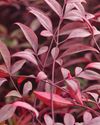
FIRE AND Feathers!
On a dreary winter's day, a screen of fiery and feathery leaves puts up a fight against dullness!
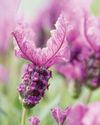
GET THE ladies in!
At this time of year, early-flowering shrubs vie with each other to get the most attention. We say: Trust those with female names for frills and butterflies. They go the extra mile to flower their hearts out.
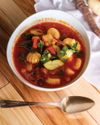
Vegetable Soups and dumplings
Vegetables make the most delicious soups and classic combinations are always a winner.
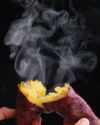
Yummy sweet potatoes for your good health
Boiled, baked or braaied, sweet potatoes (Ipomoea batatas) are a delicious and healthy winter comfort food. Just a dollop of butter, a little seasoning and you are good to go.
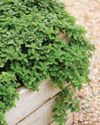
Pretty and functional
If cooking is your main thing, you would probably be more interested in the culinary value of the three herbs and some of their varieties we are describing.
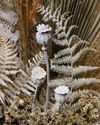
Dried Seedheads & Pods
Autumn and winter are the best times to see what flowers produce the best seedheads that can be left on the plants to feed the birds and bugs and for harvesting for dried arrangements.
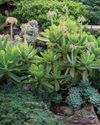
SO MANY FACES and so many choices...
Whoever associated a Cotyledon orbiculata (pig's ear) with the ear of a pig obviously did not know about all the varieties and cultivars this species in the genus Cotyledon has.
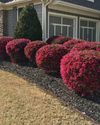
COLOURFUL Cold Weather WINNERS!
If it comes to a vote, these dependable shrubs will be the top candidates for prime performance in winter and in other seasons...
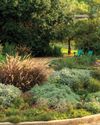
What makes a garden sustainable?
It is interesting to note that the United Nations defines sustainable development as: “development that meets the needs of the present without compromising the ability of future generations to meet their own needs”.

Nurturing NATURE-The Story of Kraal Garden's Transformation
Nestled within Prince Albert's rustic embrace lies a gem that is a testament to the transformative power of human vision and nature's bounty.